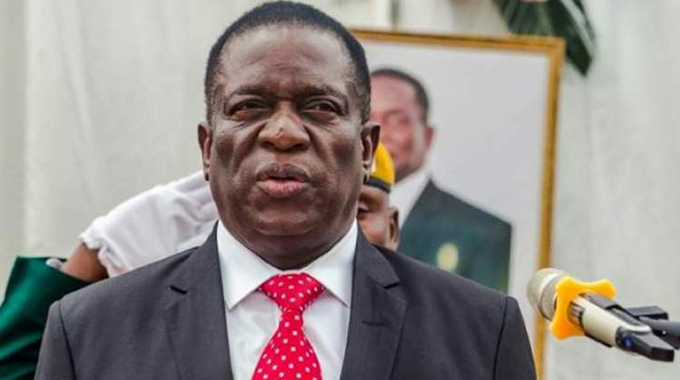Zim-SA BNC: A dream whose time has come

Elliot Ziwira Senior Writer
They know more about us than we do; they even know those who frequent our places in our absence, and what the ”hood” says or thinks about us. Also, they can smell trouble lying in wait for us miles away.
If only we could give them a chance to give us a hint, our neighbours could help us achieve more than we could ever dream of. Such is the nature of neighbourliness.
There is so much we would rather our neighbours didn’t know, or keep out of popular domain. We fear that they will rouse the rabble in our disfavour, so we would rather withdraw into our cocoons behind high walls, and tell our hearts that our neighbours are hostile, yet we fear that hostility.
As Friedrich Nietzsche points out: “We fear our neighbour’s hostile mood because we are afraid that this mood will lead him to penetrate our secrets.”
Secret, secrets, and more secrets! Such is the nature of modernity. Our people have a saying that translates to the effect that a good turn deserves another, which calls for good neighbourliness.
When it comes to good neighbourly tenets, candidness, fairness and trust rank high above mere flattery and tall talk. If action follows words, then the better it is for the common good.
It is against this backdrop that the agreement by the two principals to the Third Session of the Zimbabwe-South Africa Bi-National Commission Summit, which ended in Harare on Tuesday, President Mnangagwa and his counterpart President Cyril Ramaphosa, to accelerate implementation of 45 Memoranda of Understanding (MOUs) cutting across various sectors of the economy, becomes apt in setting the tone for what constitutes brotherliness.
Zimbabwe needs South Africa as much as South Africa needs Zimbabwe, for the Southern African sister countries share a rich history of cooperation and cultural ties. The liberation movements of the two countries tap into a common chalice inspired by the desire for freedom, independence and economic emancipation.
Having gained Independence in 1980, ahead of their brothers and sisters across the Limpopo, the people of Zimbabwe remained steadfast in their support of the liberation struggle in South Africa against the heinous apartheid system.
With the apartheid system bent on thwarting cooperation that would heighten the aspirations of the people of colour, the peoples of South Africa and Zimbabwe maintained unofficial relations between 1980 and 1994 through the Trade Office in Harare. From April 29, 1994, bilateral relations between the two countries took a new dimension meant to push forward the aspirations of the peoples of Zimbabwe and South Africa through fostering of win-win outcomes.
Presidents and ministers of the two sister countries have been shuttling across the Limpopo in an effort to find each other, for decades now. There are a lot Zimbabweans who had found home in South Africa. Through marriage and cultural links, Zimbabweans and South Africans have been one people.
Mother Fortune is known to have smiled on both countries differently in terms of time, place and space, which means that in one way or the other, the one was on top of the game while the other was down, thus, extending a brotherly hand to one on the wrong side of fortune has always been the way to go.
Beyond sharing geographical proximity, Zimbabwe and South Africa are top trading partners. According to the Zimbabwe National Statistics Agency (Zimstats), Zimbabwe imported goods worth $6,3 billion between February and December 2018, up from $4,9 billion in the prior year.
During the same period the country’s exports stood at $3,9 billion, leaving a trade deficit of $2,4 billion.
A trade deficit of such a magnitude does not augur well for Zimbabwe’s efforts to rebuild the economy reeling under a liquidity crunch and foreign currency shortages, due to sanctions imposed on the nation state. Also the nature of exports exposes another challenge; the exports are mostly unprocessed raw materials.
There is urgent need for beneficiation across all sectors.
With the country angling for a middle income economy by 2030 supported by the economic blueprint, Transitional Stabilisation Programme (TSP), the implementation of 45 agreements between Zimbabwe and South Africa in existence on paper for some time, will not only add value to the country’s exports, but will revive the manufacturing, mining and agricultural sectors of the economy among others.
It is imperative at this stage to mention President Mnangagwa’s mood and confidence as clearly articulated in the tone of his words before the BNC that gone were the days where talk and more talk remain the other of the day, with no tangibles gained for the common good of the peoples of Zimbabwe and South Africa.
He said: “Let us draw lessons from each other’s economic experiences and harness from our strengths and competencies for shared success, so that we blossom together.
“The current circumstances demand that we keep pace with the times through more active and robust economic engagements. Therefore, our Bi-National Commission should never be merely a talk-shop, but a platform for transformation of our countries’ economies.
“Zimbabwe remains willing to promote and facilitate multi-dimensional trade and investment from our South African neighbours.”
Indeed, there is need to move away from the tendency to merely ink documents without putting enough arsenal and will, both political and economic, to see such agreements to fruition. It is not so much about the number of MOUs signed, but about their value in tangibles translating to the change of outcomes for citizens in both countries.
Yes, 45 is such a huge number, and will remain that; a figure, if implementation waits for another BNC. The light beckons ahead, as the two principals share a common vision of mutual benefit underlined by trust, openness and support beyond politicking. The fight against neo-colonialism remains an uphill task, acerbated by the rise of puppetry and the politics of subterfuge that has become a bane on pan-Africanism and nationalism.
If brothers fight in each other’s corner, calling a spade by its name, not just a garden tool, putting action where their words are, the better it is for the people of colour, who for long have carried the punch bag tag over eons of subjugation, displacement, dispossession and mutilation.
Describing the summit as one of the most successful Bi-National Commission meetings between Zimbabwe and South Africa, President Ramaphosa intimated:
“We think that at the BNC level, we have formed a very firm foundation of being able to assist one another. May I say as well as the two teams of ministers and deputy ministers, and also as the two Presidents, our efforts are really emboldened and strengthened because there is a deep level of trust, a deep level of being able to work together very cordially even as we have to deal with difficult issues we find that we are always able to find solutions.”
Indeed, where there is a will there is always a way, even in the face of adversity, for a dream whose time has come cannot be wished away, as President Mnangagwa succinctly highlights in his closing remarks: “I yet again exhort our two sides to vigorously pursue implementation of those signed agreements in the past. I urge ministers and officials from both sides to be action-oriented. Let us all focus on the implementation of areas that we discussed and agreed on.”
Action-oriented, that is the spirit we need for us to reach that Golden Future Time!









Comments